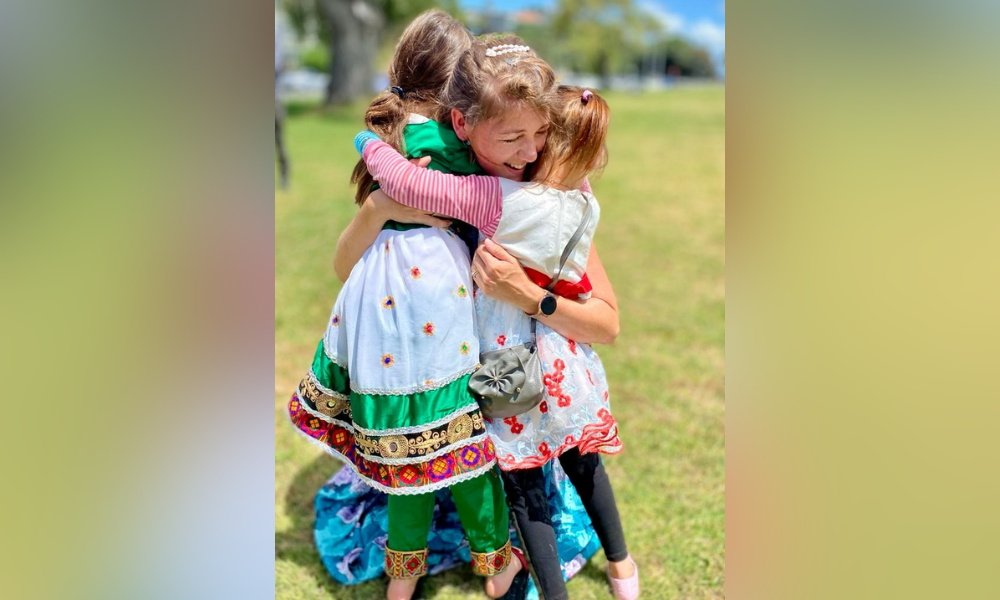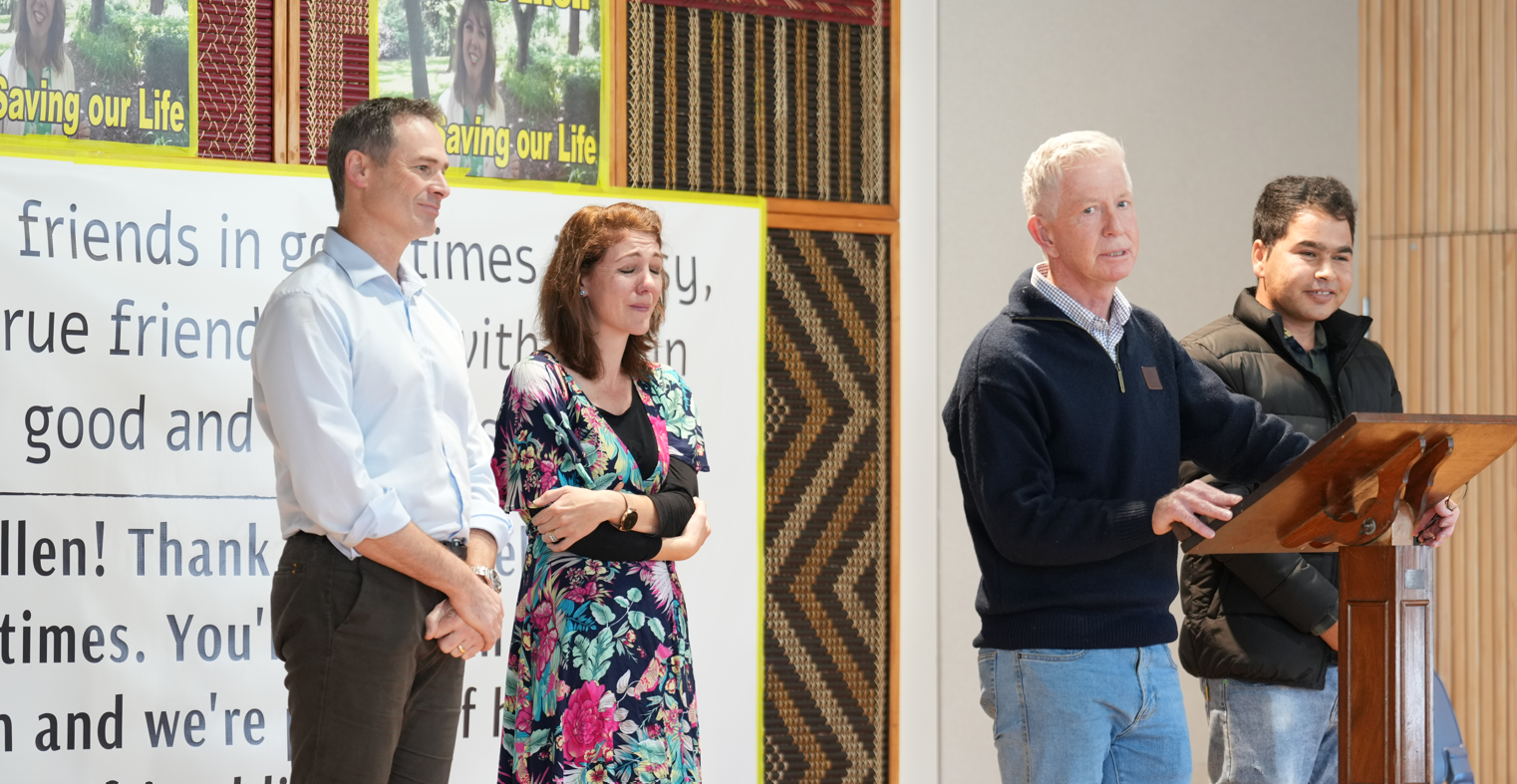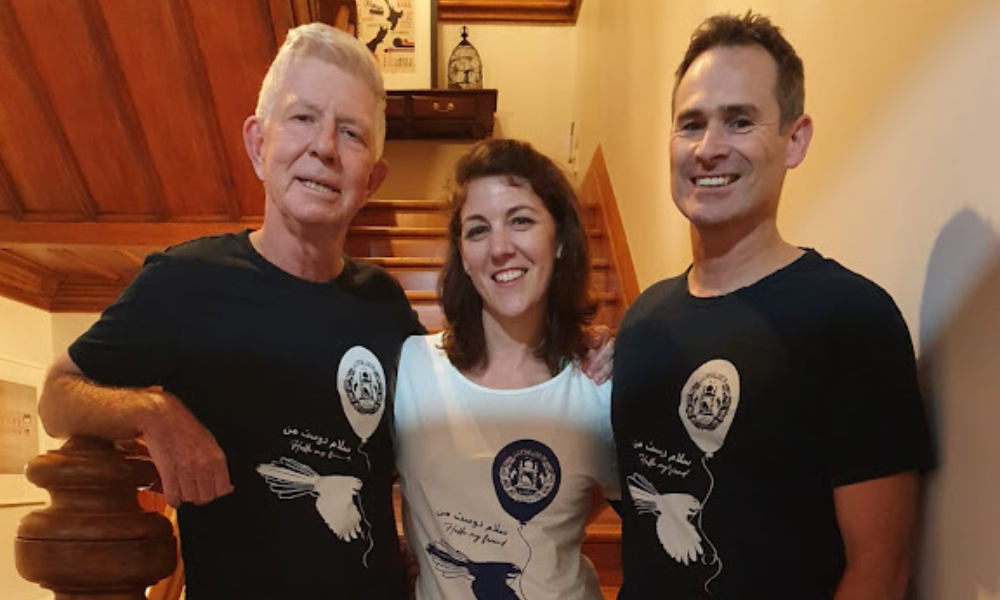
'Someone that had worked on my team, who I cared about, asked for my help and so I said sure'

11 years ago, Dr. Ellen Nelson was an engineer officer in the New Zealand army. Stationed in Afghanistan she led a team that included Kiwis and fifteen Afghan locals. When the Taliban captured Kabul in August of 2021, Nelson received a phone call from one of her team pleading for help to get the 12 Afghan members of her team that remained in Kabul evacuated from the Taliban controlled capital.
“Someone that had worked on my team, who I cared about, asked for my help and so I said sure,” Nelson told HRD. “I had no idea what to do, but I said that I would do whatever I can to help.”

Whatever it took to help turned out to be a mammoth task. Helping one family turned into helping several in a matter of days it was more than 50 families, totalling several hundred people. Nelson spent a month barely sleeping or eating as she diligently compiled documentation required for hundreds of detailed VISA applications, successfully gaining VISAs for all.
“I’d done the task to get the VISAs, but the next step was to actually get them out of Afghanistan. I was just beside myself feeling that these people were on my shoulders, and I had no idea how to evacuate them.
Read more: Are university degrees relevant to high-level leadership?
Enter Chris Parsons and Martin Dransfield, two men that had seen Nelson’s work in the media and wanted to help. They brought their skills to the table and the team spent the next nine months collaborating with the NZ Government taskforce, led by the Ministry of Foreign Affairs and Trade (MFAT) to overcome barrier after barrier.

The group used the media to pressure the government and gain public support, they raised hundreds of thousands of dollars from generous New Zealanders to fund the evacuation costs and used their various networks to complete detailed documentation for each of the Afghan families and manage the logistical requirements for border crossings.
As well as being complex, frustrating, and time-consuming, Nelson said, “the emotional toll of feeling responsible for the safety of the families we were helping was substantial.” But all their hard work culminated in 563 people being evacuated from Afghanistan and the trio were honoured by the people they evacuated in a ceremony in May.
You Tube video of trio being honoured
Dr. Ellen Nelson
1.Know when to lead, but also know when to follow
While my teammates considered me the ‘heart’ or the ‘glue’ of our team, there was no formal leader, and no hierarchy. We each took the lead in the areas we had the skills, networks, and expertise. We all played a leadership role with the tasks relating to the various connections we each had. No one assigned us these roles, but we seemed to know when it was our place to follow, and when it was our place to lead.
2. Authenticity – the best version of you is you
The best leader anyone can be is the leader that is true to themselves. While I have always considered myself to be authentic, I do not think I have ever been so ‘real’ during a task before. My team have seen me in tears, they have read and listened to my vents and rants, as well as my vulnerabilities and insecurities, and they have accepted my full-on personality, packed with feelings, passion and affection. I emotionally absorbed the sorrows and fears of the Afghan families, and this was an overwhelming weight on my shoulders. If I had not felt comfortable to be so authentic and let my emotions out every time we had a worrying setback, I would have exploded. For me to contribute positively to my team, and to this task, I needed to bring my A-Game. And bringing my A-Game meant I needed to bring the ‘full Ellen’, warts and all.
3. Diverse perspectives, coupled with inclusion
Our group spans three generations: Baby Boomer, Gen X and two of us in Gen Y. We have diversity of gender, ethnicity and nationality in the team, and we are diverse in the way we think. We would have robust conversations about the best way to approach each barrier we came up against. This was a complex task, with a range of stakeholders. Diversity was not a ‘nice to have’ but was essential for success. Further, diversity on its own means nothing if there is not also inclusion. We held each other in such high regard and valued and respected each other’s views.
Read more: Leadership lessons from Matthew McConaughey
4. The power of purpose
We each believed that evacuating these people to safety was the right thing to do. We were all volunteers, and we made significant sacrifices: to our time, our mental health, our ‘actual work’ and our sleep. When people have a clear purpose, and when they believe that what they are doing has meaning, they will be relentless in achieving that purpose.
5. Ditch the 9 – 5 and focus on output
Following my PhD and post-doctoral research, I founded the #workschoolhours movement, which focuses on outputs and on flexibility. This Afghan evacuation task was measured only by the outputs we agreed to each other that we would do. There were no set hours, we completed our tasks in and around our life. During these nine months, I have seen Chris and Martin only three times each in person and I have never met Alex; our communication has been via phone, zoom, messages and email. I don’t accept the argument that people need to be in an office, during set hours, to achieve mission success, and to bond as a team.
6. The power of collaboration
As well as collaborating with each other, our team collaborated with many people who supported this task. My Afghan interpreter friends were instrumental, as were the connections that Martin, Alex and Chris had. Our collaboration with the media, with generous donors, and with other advocates beyond our team, was vital for the success of this task. We worked alongside some incredible government officials. The task would not have been possible without this collaboration between the NZ government and volunteer advocates.
7. Caring is under-rated
I don’t think the term ‘care’ can be used strongly enough in this situation. Our team cared so deeply about these families, and about New Zealand meeting its moral obligation. If any of us had cared just a little bit less, we would have walked away from this, and perhaps the outcome for these families would have been different.
8. The power of fun
There was obvious joy each time a family was evacuated across the border. But my regular joy came from interacting with my team. Chris, Martin, and Alex each taught me so much – the education gained during this journey has been invaluable. This was a very serious and important task, with very high stakes. Yet we had so much fun together. We bonded so tightly and generated a magical team chemistry. We shared so many laughs, would make fun of each other, share goofy memes, tell jokes and stories. I even made some comic sketch videos and a ridiculous rap video in an attempt to make the guy’s smile. I gained three incredible friends for life. Fun is what sustains people.
9. Never underestimate someone with a baby
I believe that we should appreciate the skills people gain by having children: empathy, time management, selflessness, patience, negotiation, resilience and so much more – all attributes that are of great value in the workplace. Do not ever underestimate the capability of a parent with a young child.